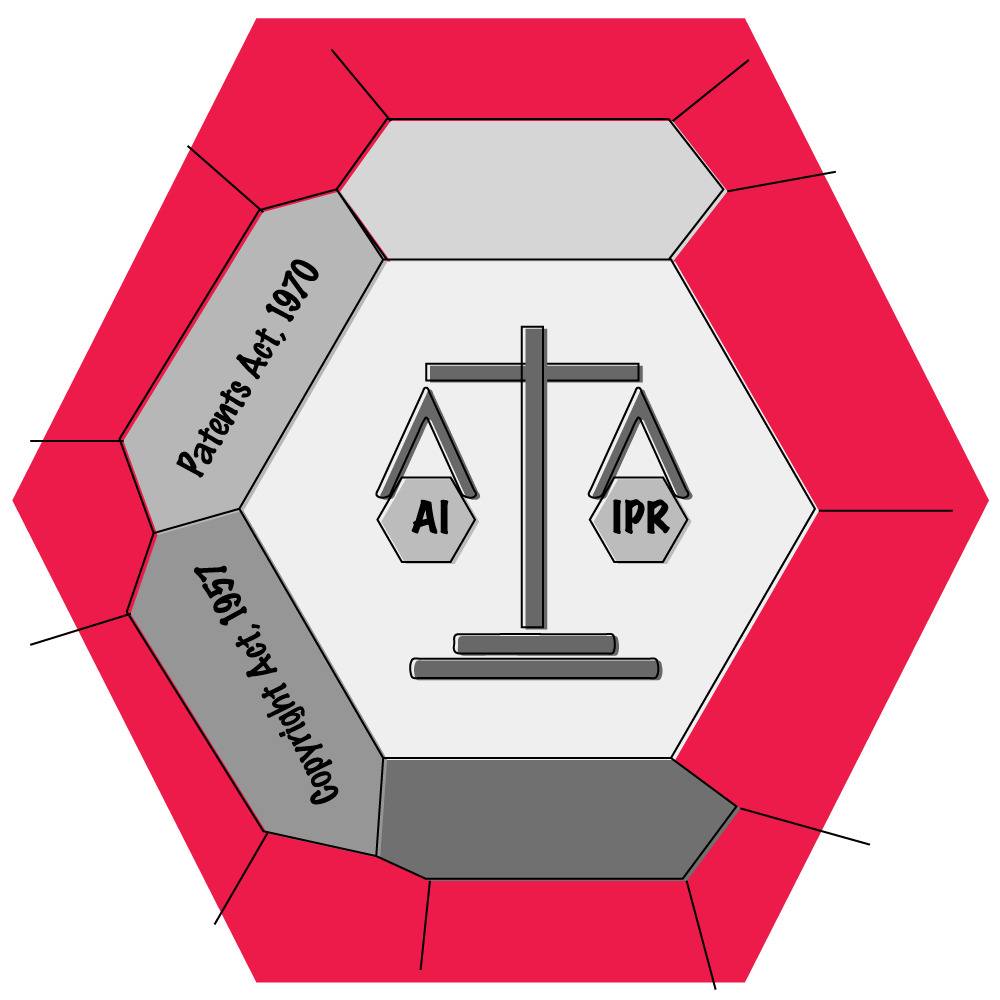Impact of Commercialization of Artificial Intelligence on Intellectual Property Rights

Introduction
The quantum of data produced by the human mind and automated systems far surpasses the human capacity to comprehend, analyze and make intricate decisions using that data. However, Artificial Intelligence (AI) has no trouble in processing this large chunk of data and perhaps represents the future of intricate decision-making processes. Intellectual property mechanisms provide motivation for human innovation and creativity. With the rapid expansion of AI as a versatile technology impacting various sectors of the economy and society, it raises essential doubts of the challenges the foundation of current intellectual property systems. The questions that arises primarily is if there be a necessity for IP incentives in the context of AI innovation and creation? How should the value of human invention and creation be weighed against AI’s innovative capabilities? Should the emergence of AI prompt any modifications to the existing frameworks of IP?
The development of AI is receiving significant investments from corporations, as it is believed to have groundbreaking effects such as predicting epidemics, enhancing disaster warnings, improving productivity across industries and more. While the potential benefits and risks of AI are vast, its commercialization is inevitable and a vital question comes up: Are there adequate laws in place to address the issues that may arise from the commercialization and use of AI? Regrettably, the answer is a no.
The Current Situation
The World Intellectual Property Organization (WIPO) published a paper in 2019 that addressed the rise in artificial intelligence-related patent applications in the domains of telecommunications, transportation and medical sciences. When an AI system by the name of DABUS was named as the inventor in patent applications submitted in the UK, USA and Europe in 2017, they were all denied in those three countries because AI is not typically regarded as a legal person under most intellectual property rights (IPR) systems.
The issue of patenting AI systems within the framework of subject-matter eligibility criterion presents a practical challenge in the realm of AI and intellectual property rights (IPRs). Unless AI systems are endowed with technical character through the form of useful software, algorithms alone would do not meet the requirements for protection under IP regulations. Such algorithms are often considered vague systems lacking the necessary technical character. Several countries’ intellectual property (IP) regulatory bodies have taken steps to address this issue by creating guidelines for examination and promoting patent protection in technological fields, including AI. These guidelines aim to clarify which algorithms can be considered eligible for patentability. This allows for subsequent evaluation of these algorithms based on criteria such as innovation and enablement. The regulators’ intention is to adapt to the evolving technology landscape and accommodate the increasing number of applications in these areas.
Indian Perspective
The Copyright Act, 1957 and Patents Act, 1970 are two legislations that will have a major impact on AI systems in India. The development of AI is frequently hampered by certain clauses in these acts, which also deny the creations of these machines’ IP protection. It is past time for these laws to be updated to account for more sophisticated and modern technologies.
Copyright Act, 1957 and AI
Section 2(d) of the Copyright Act, 1957 raises concerns about the copyright protection of works created by AI systems. The definition of “author” in this section creates a dilemma because AI is not typically recognized as a legal entity.
The phrase “the individual who causes the work to be generated” presents a challenge to this concept. In order to create a work, a person must be closely involved with it, and for the purpose of this act, “person” could refer to be either a natural person or a legal person. AI systems are not specifically addressed in the current Copyright Act. Consequently, the authorship of works produced by AI would be uncertain under Indian Copyright Laws.
Patents Act, 1970 and AI
Under the Patent Act 1970, the absence of a specific requirement in Section 2(y) regarding the “true and first inventor” to being a human allows for the possibility of including works created by AI systems. However, when examining terms such as “patentee” and “person interested”, it becomes evident that they imply a legal person, suggesting that the legislature intended to benefit individuals and other legal entities. Therefore, it is important to amend these laws to address the demands of a changing society and advancements in scientific systems.
Recommendations and Conclusion
Intellectual Property is an ever-evolving and dynamic field and it is imperative that legislations throughout the country introduce relevant amendments in order to keep the law in consonance with developments in AI.
Considering the aforementioned progress, India should firm up with a team comprising technical and legal experts in intellectual property (IP) to evaluate the existing laws and the challenges posed.. This team is to propose potential solutions to address these issues and recommend necessary amendments to current laws in order to effectively incorporate AI rights. Subsequently, the matter can be discussed at a broader forum such as the 25th Session of the WIPO Committee on Development and Intellectual Property (CDIP). However, given the significant impact of AI on various industries in India, particularly agriculture and healthcare sectors that require improvement, India must actively engage in the formulation of IP regulations that foster AI development to keep space with its advancement Based on these sources, it can be concluded that the impact of commercialization of artificial intelligence on IPR is significant and multifaceted.
References:
- https://www.netapp.com/artificial-intelligence/what-is-artificial-intelligence/
- https://www.wipo.int/about-ip/en/artificial_intelligence/policy.html
- https://indiaai.gov.in/ai-standards/ai-and-intellectual-property-rights
- https://www.ijlmh.com/wp-content/uploads/2019/03/Artificial-Intelligence-And-Intellectual-Property-Laws-In-India-Is-It-Time-For-Renaissance.pdf
- https://www.scconline.com/blog/post/2018/06/07/mounting-artificial-intelligence-where-are-we-on-the-timeline/
- https://dspace.mit.edu/handle/1721.1/122431

